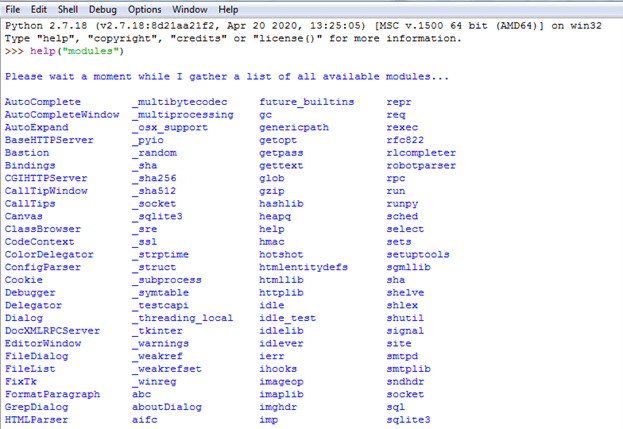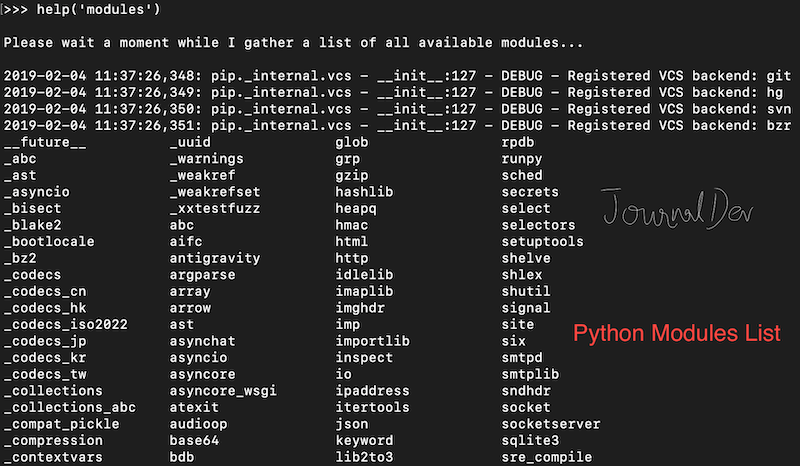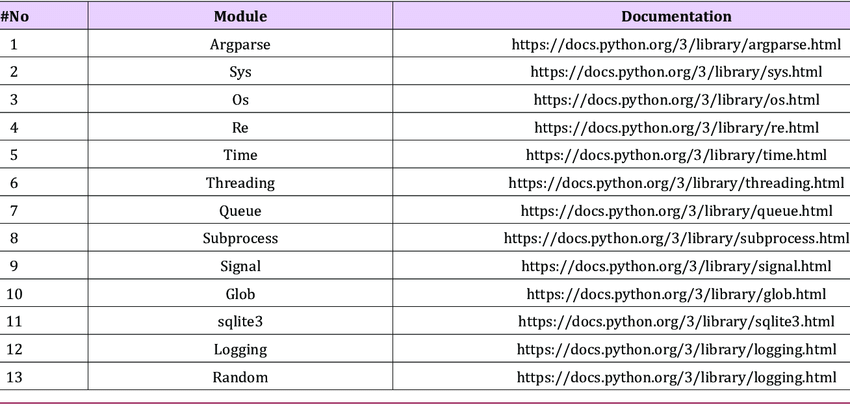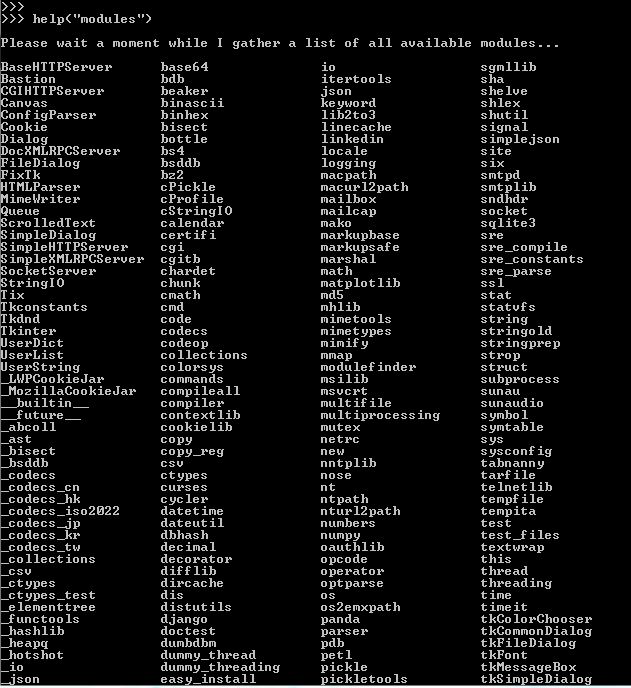python external modules list
python external modules list

Here is a list of popular Python external modules:
pandas: Library for working with structured data and analysis. numpy: Library for efficient numerical computation. scikit-learn: Library for machine learning and statistical analysis.


For natural language processing:
NLTK (Natural Language Toolkit): A comprehensive library for NLP tasks such as text processing, tokenization, and stemming. spaCy: A modern NLP library featuring high-performance, streamlined processing of text data. gensim: Library for topic modeling and document similarity analysis.For data visualization:
bokeh: Library for creating interactive plots, dashboards, and data applications. plotly: Library for creating interactive 3D and 2D plots. dash: Library for building web-based dashboards with Python.For machine learning and deep learning:
TensorFlow: Open-source software library for numerical computation using the dataflow and linear algebra. Keras: Deep learning library written in Python, capable of running on top of TensorFlow or Theano. PyTorch: Open-source machine learning library that provides a dynamic computation graph. LightGBM: Fast and efficient gradient boosting framework. xgboost: High-performance Gradient Boosting algorithm.For web development:
Flask: Micro web framework for building small web applications. Django: High-level Python web framework that enables rapid development of secure, maintainable websites. Bottle: Lightweight and modular web framework. Pyramid: Flexible and modular web framework.For automation and testing:
pytest: A powerful test runner for Python with a wide range of features and plugins. behave: A behavior-driven development (BDD) library for Python. robot: A generic test automation framework that allows you to write tests in multiple languages.This is not an exhaustive list, but it covers many of the most popular Python libraries across various domains.
What are standard modules in Python?
I'd be happy to respond in English for this question.
Standard modules in Python refer to the built-in libraries that come bundled with the language. These modules provide a wide range of functionalities, such as data structures, algorithms, file input/output operations, and more. Some of the most commonly used standard modules in Python include:
math: This module provides mathematical functions for tasks like calculating trigonometric values, logarithms, exponentials, and more. random: As its name suggests, this module allows you to generate random numbers, which can be useful for simulation purposes or statistical analysis. time: The time module is used to interact with the system clock. You can use it to get the current time, sleep for a certain amount of time, or even manipulate the system clock itself. datetime: This module provides classes for working with dates and times. You can use it to create date and time objects, format them according to specific patterns, and more. os: The os module is used to interact with the operating system's file hierarchy. You can use it to get the current directory, navigate through directories, execute shell commands, and more. sys: This module provides information about the Python interpreter itself. You can use it to access variables like the command-line arguments passed to your script or the current program name. re: The re (regular expression) module allows you to work with regular expressions in Python. You can use it to search patterns, replace strings, and more. functools: This module is a collection of utility functions for working with higher-order functions (functions that take or return other functions). You can use it to create partial function applications, reduce functions over sequences, and more. collections: The collections module provides a range of specialized data structures like dictionaries, lists, dequeues, counters, and more. These data structures can be used for various purposes such as caching, queueing, or counting items in an iterable. itertools: This module is a collection of functions for working with iterators (iterable objects that return values on demand). You can use it to create infinite loops, repeat elements, generate permutations and combinations, and more. statistical: This module provides functions for statistical analysis like calculating mean, median, mode, and more. gzip and zlib: These modules are used for compressing and decompressing files using the Gzip and ZLib algorithms. csv: The csv (comma-separated values) module allows you to read and write CSV-formatted files. You can use it to work with spreadsheet data or export data from a program to a text file. json: This module provides functions for working with JSON (JavaScript Object Notation) data format. You can use it to serialize Python objects into JSON strings, deserialize JSON strings into Python objects, and more. xml.etree.ElementTree: The ElementTree class in this module is used to parse XML files. You can use it to work with XML data structures or create your own XML files programmatically. socket: This module provides functions for working with network sockets, allowing you to establish TCP/IP connections and send/receive data over them. http.client: The http.client module is used to interact with HTTP (Hypertext Transfer Protocol) servers. You can use it to fetch web pages, post data to a server, or get the headers of an HTTP response. urllib.parse: This module provides functions for parsing and formatting URLs according to the URL specification. You can use it to manipulate URLs, parse query strings, or encode/decode URI components. subprocess: The subprocess module is used to run shell commands from within a Python program. You can use it to execute system commands, capture their output, or send input to them.
These are just a few examples of the many standard modules that come bundled with Python. By using these built-in libraries, you can save time and effort when programming in Python and create more robust applications.





























